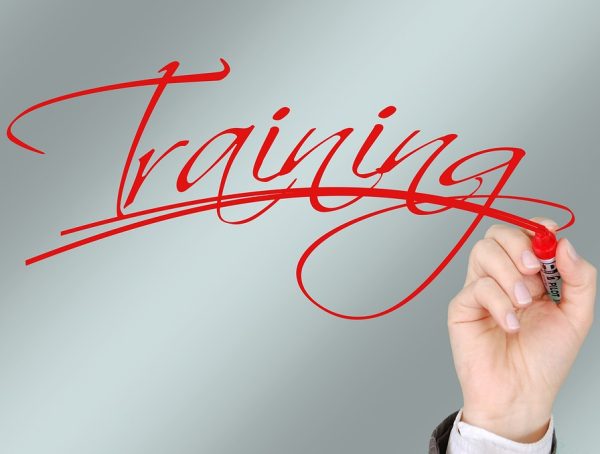Understanding Emotional Intelligence as a Key Leadership Skill
In today’s fast-paced and ever-evolving professional landscape, technical skills and intellectual acumen alone are no longer enough to guarantee effective leadership. An emerging consensus suggests that emotional intelligence (EQ) is a crucial component in guiding successful teams and organizations. But what exactly is emotional intelligence, and why is it so vital for effective leadership?
What is Emotional Intelligence?
Emotional intelligence can be defined as the ability to recognize, understand, and manage our own emotions, as well as the ability to recognize, understand, and influence the emotions of others. It encompasses several key competencies, including:
- Self-awareness: Recognizing one’s emotions and their impact on thoughts and behaviors.
- Self-regulation: Managing emotions in healthy ways, controlling impulsive feelings and behaviors, and adapting to changing circumstances.
- Motivation: Harnessing emotions to pursue goals with energy and persistence.
- Empathy: Understanding the emotional makeup of other people and responding appropriately to their emotional reactions.
- Social skills: Building relationships, managing conflict, and inspiring others.
The Importance of Emotional Intelligence in Leadership
Leaders with high emotional intelligence have improved interpersonal relationships, team dynamics, and overall organizational performance. Here’s why EQ is essential in leadership:
-
Enhanced Communication: Emotional intelligence allows leaders to articulate their thoughts clearly and listen empathetically. They can gauge the emotional undercurrents in conversations, making it easier to resolve conflict and encourage open dialogue.
-
Better Decision-Making: Leaders with high EQ can consider the emotional aspects of a situation, balancing logic with empathy. They create an environment where team members feel valued, leading to informed and well-rounded decisions.
-
Stronger Relationships: Empathy fosters trust and strengthens relationships within teams. When team members feel understood and respected, they’re more likely to engage, collaborate, and contribute effectively.
-
Increased Adaptability: The workplace is an environment of constant change. Leaders with high EQ can embrace change positively and inspire their teams to adapt and thrive despite challenges.
- Resilience in Crisis: Emotional highs and lows are inevitable in any organization. Leaders with emotional intelligence can maintain their calm, support their teams through adversity, and inspire confidence and optimism.
Action Steps to Develop Emotional Intelligence
If you wish to enhance your emotional intelligence as a leader, consider implementing the following action steps:
-
Self-Reflection: Take time to reflect on your emotional responses in various situations. What triggers your emotions? How do you react? Understanding your emotional patterns is the first step toward improving self-awareness.
-
Practice Active Listening: Focus on genuinely hearing what others are saying – not just the words, but the emotions behind them. Use body language, maintain eye contact, and respond thoughtfully to show you’re engaged.
-
Seek Feedback: Request constructive feedback from your peers and team members about your emotional interactions. Use this feedback to identify areas where you might improve.
-
Cultivate Empathy: Make an effort to understand the perspectives and feelings of others. Put yourself in their shoes and acknowledge their emotions. This could involve asking questions or practicing perspective-taking exercises.
-
Stay Calm Under Pressure: Develop strategies for stress management. Meditation, deep-breathing exercises, or even short breaks can help you regain composure and think more clearly in challenging situations.
-
Engage in Continuous Learning: Consider reading books on emotional intelligence, attending workshops, or joining leadership training programs that focus on EQ. Stay informed about personal development trends to enhance your skills continuously.
-
Lead by Example: Exhibit emotional intelligence traits within your team. Show vulnerability when appropriate, share your experiences, and encourage an open emotional exchange. Your enthusiasm can inspire others to follow suit.
-
Set Emotional Goals: Just like setting professional objectives, determine specific emotional intelligence goals you would like to achieve within a timeframe. Monitor your progress regularly and make adjustments as needed.
-
Practice Self-Care: Investing in your well-being—whether through fitness, hobbies, or downtime—can enhance your emotional capacity. Leaders who take care of themselves are better equipped to handle the emotional demands of leadership.
- Build a Supportive Network: Surround yourself with people who inspire you and challenge you to grow. Establish a circle of mentors, colleagues, or friends who can provide honest insights about your emotional interactions.
Final Thought
Emotional intelligence is a powerful leadership competency that can transform individuals and teams. By developing and refining your EQ, you can create an environment that supports innovation, fosters collaboration, and ultimately leads to a thriving organization. Remember, the journey towards greater emotional intelligence is ongoing—the more you practice, the better you will become.
"The greatest leader is not necessarily the one who does the greatest things. He is the one that gets the people to do the greatest things." – Ronald Reagan
If you enjoyed this article and want to explore more insights into leadership development and emotional intelligence, feel free to follow Kevin on Instagram (@KSteineman) for valuable content tailored for aspiring leaders and professionals.
You might also like
More from Leadership
5 Leadership Skills That Can Transform Your Organization
5 Leadership Skills That Can Transform Your Organization Effective leadership is often the cornerstone of a successful organization. Whether you're managing …
The Impact of Leadership Styles on Organizational Success
The Impact of Leadership Styles on Organizational Success Leadership is often described as the art of influencing and guiding others toward …
Engaging Leadership Skills Training Activities for Teams
Engaging Leadership Skills Training Activities for Teams In today's rapidly evolving work environment, effective leadership skills are crucial for team success. …

































